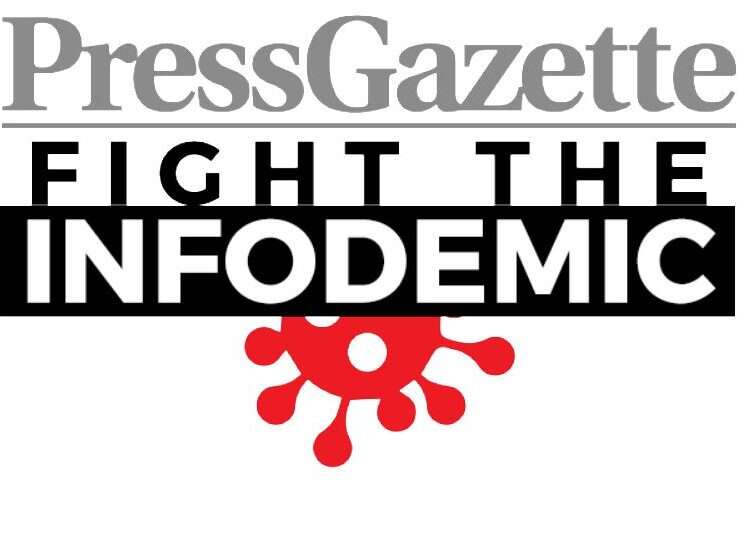
Social media companies’ handling of Covid-19 vaccine conspiracies and misinformation could play a crucial role in the world’s recovery from coronavirus, a new report suggests.
The research found that if anti-vaccination campaigners are allowed to flood social media with fake news about a future cure for the disease, “this will have a serious effect on its acceptance”.
Damian Collins, a Conservative MP and co-founder of Covid-19 falsehoods challenge group Infotagion, also today writes for Press Gazette about his fears that vaccine disinformation could “dissuade people from taking a vaccine that could save their lives”.
For its study into the “real-world effect of ‘fake news’”, business advisory firm FTI Consulting researched the impact of other vaccine misinformation on Twitter since 2013.
The research team found “that the proliferation of anti-vaccination misinformation on social media has a ‘statistically significant’ relationship with vaccination coverage, i.e. with parents’ decisions to vaccinate their children, and that this relationship is not explained by the various confounding factors. In other words, it appears to be a causal relationship.
“In particular, we find that when our measure of misinformation increases (e.g. by 100%, i.e. it doubles), this causes vaccination coverage to fall (by about 0.20 percentage points, on average). On the face of it, this seems like a small effect.
“However, it is magnified by the significant growth in misinformation over time: over the five-year period from 2014-2018, misinformation increased by approximately 800%. Vaccination coverage fell by approximately three percentage points, and our regression analysis suggests that over half of this fall may be due to misinformation.”
FTI used this study to speculate on the potential effects of anti-vaccination fake news on a future Covid-19 vaccine, which it said “will be essential in order to reduce the economic and social burden of the disease”.
The study said: “If there is a flood of misinformation on social media in relation to this vaccine, our analysis suggests that this will have a serious effect on its acceptance, and ultimately on economic and social wellbeing.
“Social media users, companies and policy makers could anticipate this impact, and start work to mitigate it now: the largest social media platforms are already doing so.
“For example, Twitter has recently updated its approach to address misinformation on its network – including for content relating to Covid-19 – and started to provide labels, warnings or to remove posts altogether depending on the form of the misinformation, and its propensity to cause harm. Facebook and Instagram are making efforts to take down content with harmful misinformation, to reduce its distribution and to apply warning labels.”
However, a recent Press Gazette poll found that nearly 80 per cent of our readers believe social media companies are doing a “bad job” of combating the spread of fake news and conspiracy theories about Covid-19. Press Gazette this month launched a new campaign, Fight The Infodemic, calling on social media companies to do more to crack down on coronavirus falsehoods.
In his Press Gazette op-ed, Collins calls for social media platforms to be subject to outside scrutiny for their handling of disinformation.
He added: “I fear that the companies will not voluntarily subject themselves to oversight, and therefore they require legislators in parliaments around the world to develop their codes. And I’ve been very encouraging and supportive of the work being done in the UK to legislate against online harms – to designate content categories that are harmful, having independent oversight of tech companies to make sure they act against, and remove and downgrade, harmful content.
“I think starting with medical disinformation is going to be so important. Because as we deal with coronavirus, as we eliminate it from our lives, one of the key tools for that is going to be having a vaccine. And one of the problems that we know we’ll have to fight will be anti-vaccine campaigners – exploiting social media’s algorithms, trying to dissuade people from taking a vaccine that could save their lives.
“And I don’t think it could get any more important than that.”
Email pged@pressgazette.co.uk to point out mistakes, provide story tips or send in a letter for publication on our "Letters Page" blog
